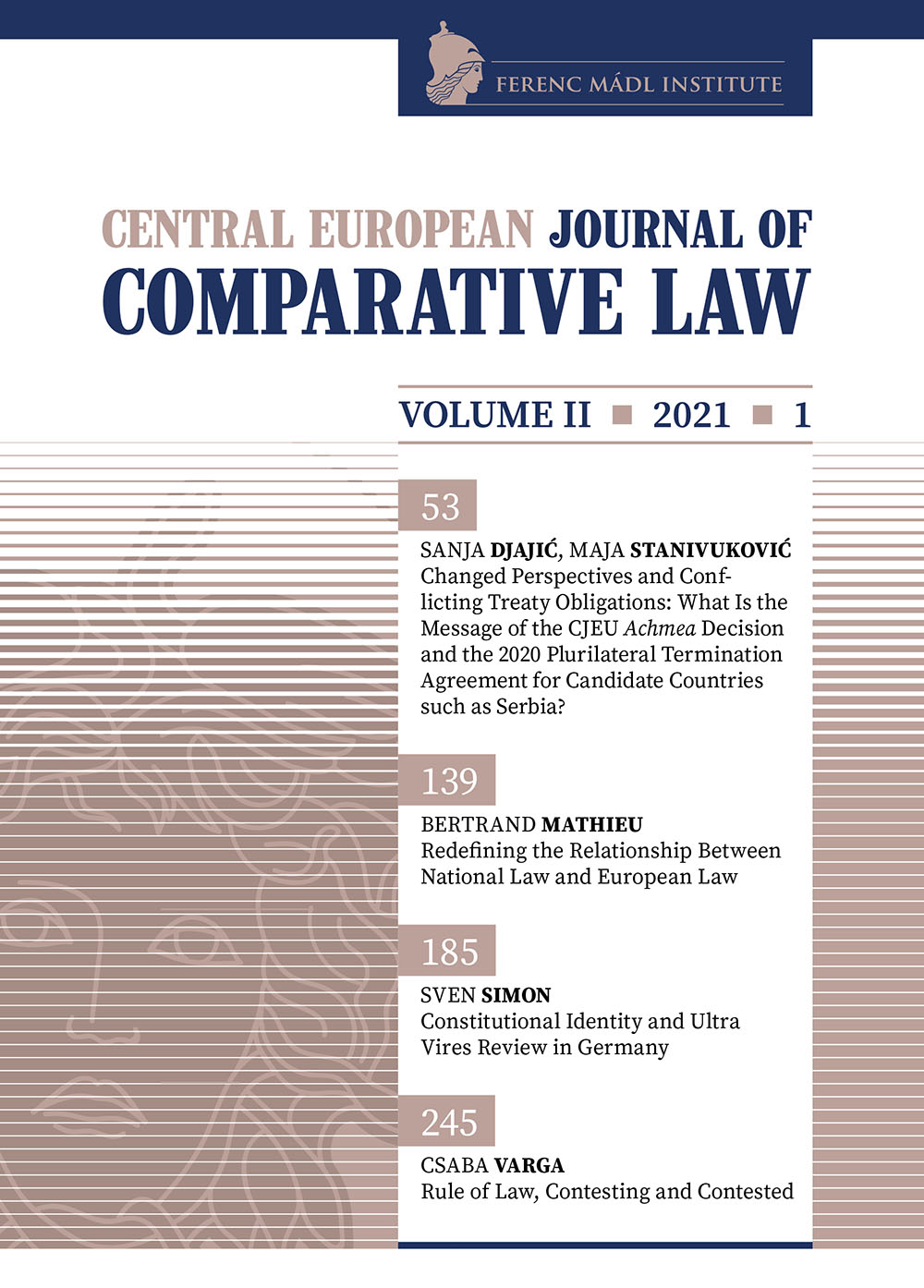The PSPP Judgment of the Bundesverfassungsgericht and the Slovenian Constitutional System
The PSPP Judgment of the Bundesverfassungsgericht and the Slovenian Constitutional System
Author(s): Marjan KosSubject(s): Law, Constitution, Jurisprudence, Human Rights and Humanitarian Law, EU-Legislation
Published by: Mádl Ferenc Összehasonlító Jogi Intézet
Keywords: German Federal Constitutional Court; Constitutional Court of Slovenia; Court of Justice of the European Union; PSPP; ultra vires review; constitutional identity
Summary/Abstract: The BVerfG’s judgment on the PSPP marks another important part of the EU constitutional mosaic. It was the first time that the court declared an EU act ultra vires. Intense academic commentary ensued, mostly adopting a critical attitude towards the judgment. However, a summary rejection of the underlying idea of an exceptional national constitutional review of EU acts does not seem warranted. Unconditional primacy has been disputed by different national courts for some time now, and on two occasions, national apex courts already declared EU acts ultra vires. Considering its inherent diversity, the EU should be able to accommodate legitimate national constitutional concerns. A common frame of reference, possibly provided by Art. 4(2) TEU, could facilitate such accommodation if very high standards of violation were adopted by national courts, which would also respect the principle of loyal cooperation. In this regard, EU law also marks red lines when it comes to its fundamental principles, limiting the possibility of abuse. The Slovenian Constitution introduces EU law through Art. 3a, adopted for the purpose of accession to the EU. The Slovenian Constitutional Court's case law is generally very EU-friendly, and it could be marked by cooperative vagueness, echoing the doctrines of the CJEU. A clear answer regarding the relationship between national (constitutional) law and EU law is lacking in its jurisprudence. The court explicitly left the question of absolute primacy open. The substantive preconditions for the transfer of sovereign rights in Art. 3a, namely, respect for human rights and fundamental freedoms, democracy, and the principles of the rule of law, have been interpreted in different ways in academia. However, considering the inalienable right to self-determination, in exceptional cases of serious encroachment on fundamental constitutional values, the SCC would probably adopt its version of the BVerfG’s doctrines.
Journal: Central European Journal of Comparative Law
- Issue Year: 2/2021
- Issue No: 1
- Page Range: 93-118
- Page Count: 26
- Language: English

